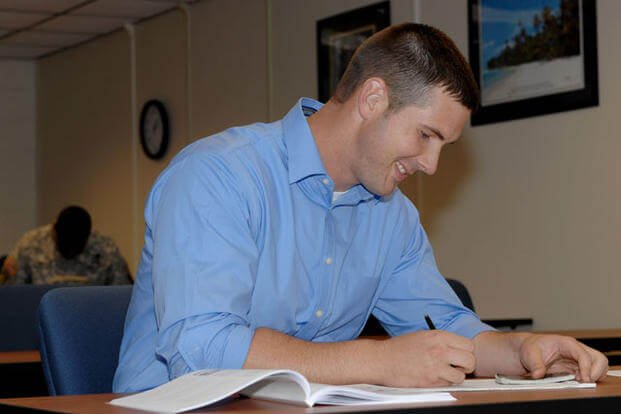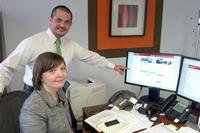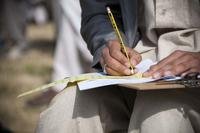My longtime fascination with politics and international affairs is reflected in my participation, starting in high school, in activities such as student council, school board meetings, Vietnam war protests, the McCarthy campaign, and the grape boycott. As each new cause came along, I was always ready to go to Washington or the state capital to wave a sign or chant slogans. Although I look back on these activities today with some chagrin, I realize they did help me to develop, at an early age, a sense of concern for social and political issues and a genuine desire to play a role.
As an undergraduate, I was more interested in social than academic development. During my last two years, I became involved with drugs and alcohol and devoted little time to my studies, doing only as much as was necessary to maintain a B average. After graduation my drug use became progressively worse; without the motivation or ability to look for a career job, I worked for a time in a factory and then, for three years, as a cab driver in New York City.
In 1980 I finally ''hit bottom'' and became willing to accept help. I joined both Alcoholics Anonymous and Narcotics Anonymous, and for the next several years the primary business of my life was recovery. Although I had several ''slips'' in the beginning, I have now enjoyed nearly seven years of complete freedom from drug and alcohol use. I mention my bout with addiction because I think it is important in answering two issues that presumably will be of concern to the admissions committee: my lackluster undergraduate record and the fact that I have waited until the age of 34 to begin preparing academically for a career in public policy. It would be an oversimplification to call addiction the cause for either of these things; rather I would say it was the most obvious manifestation of an underlying immaturity that characterized my post adolescent years. More importantly, the discipline of recovery has had a significant impact on my overall emotional growth.
During the last years of my addiction I was completely oblivious to the world around me. Until 1983 I didn't even realize that there had been a revolution in Nicaragua or that one was going on in El Salvador. Then I rejoined the Quaker Meeting, in which I had been raised as a child, and quickly gravitated to its Peace and Social Order Committee. They were just then initiating a project to help refugees from Central America, and I joined enthusiastically in the work. I began reading about Central America and, later, teaching myself Spanish. I got to know refugees who were victims of poverty and oppression, became more grateful for my own economic and educational advantages, and developed a strong desire to give something back by working to provide opportunities to those who have not been so lucky.
In 1986 I went to Nicaragua to pick coffee for two weeks. This trip changed my whole outlook on both the United States and the underdeveloped world. The combination of living for two weeks amid poverty and engaging in long political discussions with my fellow coffee pickers, including several well-educated professionals who held views significantly to the left of mine, profoundly shook my world view. I came back humbled, aware of how little I knew about the world and eager to learn more. I began raiding the public library for everything I could find on the Third World and started subscribing to a wide variety of periodicals, from scholarly journals such as Foreign Affairs and Asian Survey to obscure newsletters such as Through Our Eyes (published by U.S. citizens living in Nicaragua).
Over the intervening two years, my interest has gradually focused on economics. I have come to realize that economic development (including equitable distribution of wealth) is the key to peace and social justice, both at home and in the Third World. I didn't study economics in college and have found it difficult to understand the economic issues that are at the heart of many policy decisions. At the same time, though, I am fascinated by the subject. Given my belief that basic economic needs are among the most fundamental of human rights, how can society best go about providing for them? Although I call myself an idealist, I'm convinced that true idealism must be pragmatic. I am not impressed, for example, by simplistic formulations that require people to be better than they are. As a Quaker I believe that the means are inseparable from the end; as an American I believe that democracy and freedom of expression are essential elements of a just society, though I'm not wedded to the idea that our version of democracy is the only legitimate one.
Although I have carved out a comfortable niche in my present job, with a responsible position and a good salary, I have become increasingly dissatisfied with the prospect of a career in business applications programming. More and more of my time and energy is now being absorbed by community activities. After getting my master's in public administration, I would like to work in the area of economic development in the Third World, particularly Latin America. The setting might be a private (possibly church-based) development agency, the UN, the OAS, one of the multilateral development banks, or a government agency. What I need from graduate school is the academic foundation for such a career. What I offer in return is a perspective that comes from significant involvement in policy issues at the grass roots level, where they originate and ultimately must be resolved.





